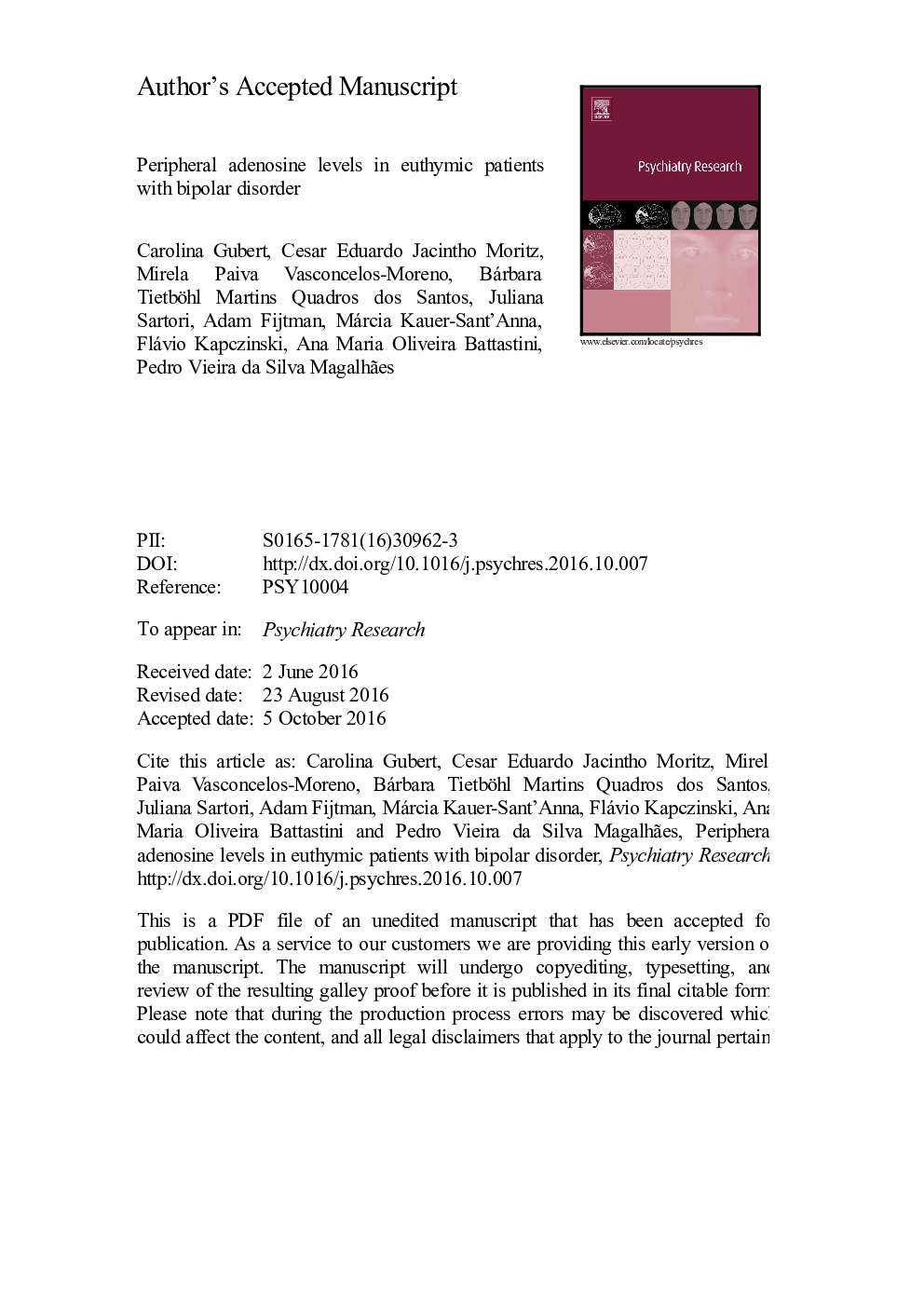| Article ID | Journal | Published Year | Pages | File Type |
|---|---|---|---|---|
| 4933814 | Psychiatry Research | 2016 | 24 Pages |
Abstract
Recent evidence points to the involvement of the purinergic signaling in the pathophysiology of bipolar disorder. The aim of this study was to assess the serum levels of adenosine and to evaluate its relation to functioning in 24 euthymic patients with bipolar disorder type I and in 25 matched healthy controls. Subjects were evaluated using the functioning assessment short test. Serum purine levels were measured by high pressure liquid chromatography. Our results show a decrease in serum adenosine levels in bipolar disorder patients compared with controls (t=Â â4.8, df=Â 43.96, p<0.001). Moreover, a significant negative correlation was found between patient adenosine levels and depression scale scores (r=Â â0.642, p=Â 0.001). Higher functional impairment was linked to lower levels of adenosine in patients (rho=Â â0.551, p=Â 0.008). Taken together, our results provide evidence for a purinergic imbalance in bipolar disorder, specifically an adenosinergic dysfunction. Our results also indicate a relation between adenosine levels and the functional impairment caused by the disorder, which could demonstrate a potential relation of adenosine levels in worsening of symptoms.
Related Topics
Life Sciences
Neuroscience
Biological Psychiatry
Authors
Carolina Gubert, Cesar Eduardo Jacintho Moritz, Mirela Paiva Vasconcelos-Moreno, Bárbara Tietböhl Martins Quadros dos Santos, Juliana Sartori, Adam Fijtman, Márcia Kauer-Sant'Anna, Flávio Kapczinski, Ana Maria Oliveira Battastini,
